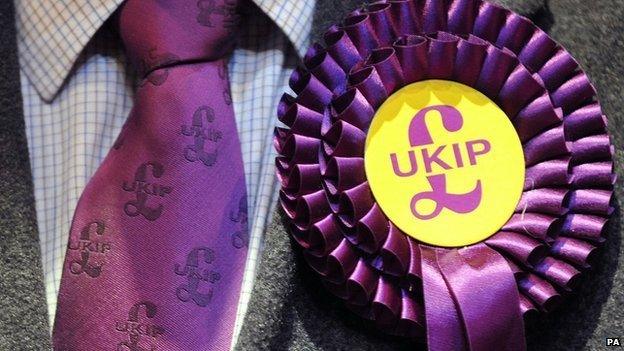General election: Will Welsh UKIP voters stay with UKIP?
- Published
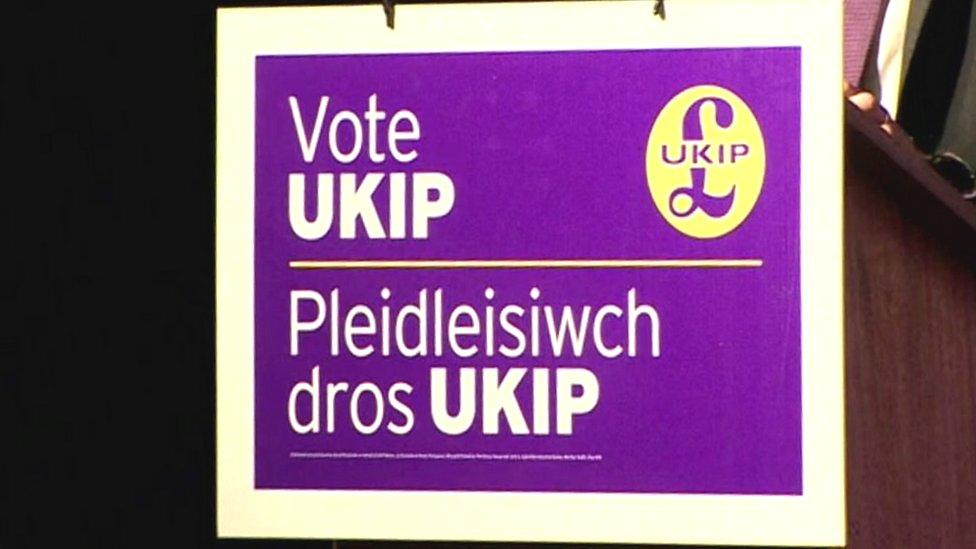
The day is 8 May, 2015 - the day after the last general election.
David Cameron, then leader of the Conservatives, was triumphant - winning a majority for the Tories at Westminster for the first time since the 1990s.
In Wales, Labour lost two seats in Gower and Vale of Clwyd.
That was not the only shock.
UKIP's general election performance was usually nothing to write home about.
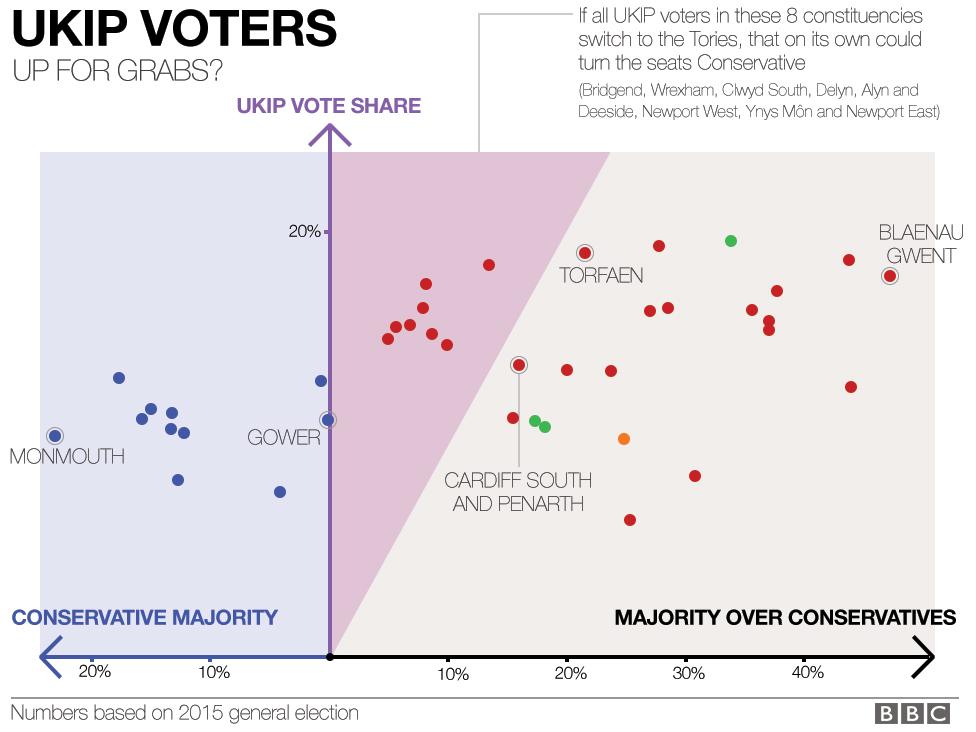
Some Labour seats could be in trouble if UKIP voters switched to the Tories
But in May 2015 UKIP came third in the overall vote in Wales - beating Plaid Cymru and taking 13.6% of the vote.
What made the result all the more notable was that many of the places it performed well in were traditional Labour areas.
It later consolidated that success by winning seven seats in the 2016 Welsh Assembly elections.
Fast forward to 2017, and much has changed.
There has been an EU referendum where Leave won - and there is a new prime minister who has called a snap general election.
On the face of it, UKIP has been successful in achieving its flagship policy.
But, despite a successful referendum campaign, the party saw a row over its leadership in the assembly, and defections have seen its number of AMs fall to five.
Now, in Wales, the party is standing 32 candidates - not the full 40.
It has no candidates in Aberconwy, Arfon, Clwyd West, Delyn, Montgomeryshire, Swansea West, Vale of Clwyd and Wrexham.
So, in this context, will the party's vote hold up elsewhere?
And where could it go in places the party is not even on the ballot paper?
Cardiff University Professor Roger Scully said recent polls suggested UKIP support had collapsed
Cardiff University elections expert Prof Roger Scully suggests that polling at the moment showed "UKIP support plunging".
He believes there are a "lot of votes" that went to the party in the past up for grabs, both in places where UKIP is standing and where it is not.
"UKIP have done very well in Wales in the last three major electoral contests - the European elections, the general election 2015, the assembly election last year," Prof Scully said.
"UKIP saved every single deposit in Wales in the last general election.
"There's quite a lot of UKIP votes out there."
UKIP fielded only 80 candidates for the 1,254 seats available in Wales for the council elections in May, and won no seats.
Prof Scully said the party did "very poorly even in a few places where they stood candidates".
Previous polling had suggested that "it appears that the Conservatives, right at the moment, are being very effective in hoovering up the 2015 UKIP vote", he added.
This could be "clearly dangerous" for Labour in relatively marginal seats - places like Delyn, Alyn and Deeside, Clwyd South, the Newport seats and Wrexham.
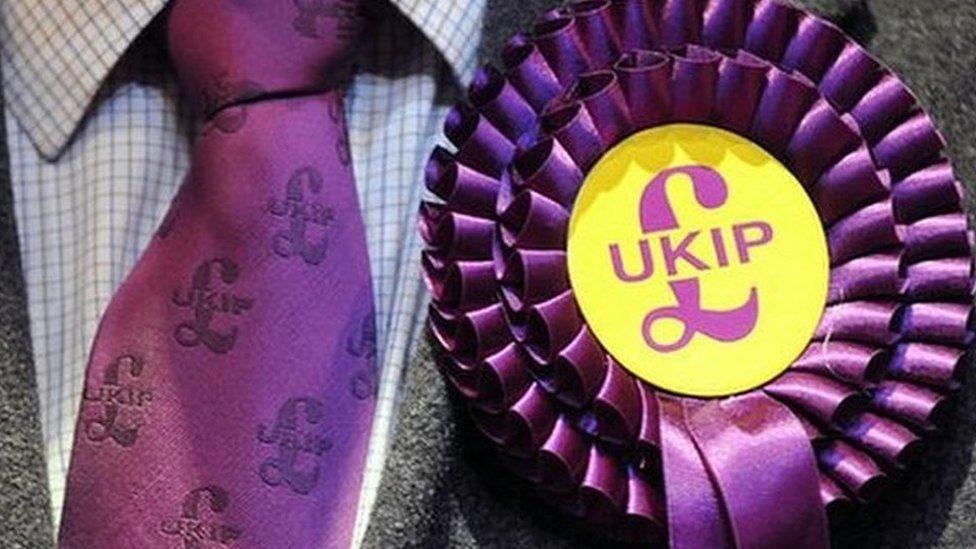
But could UKIP voters turn back to Labour?
The argument is that Labour candidates with a record of campaigning on steel and other industries would be able to make the case to those voters.
Behind the scenes the Conservatives have briefed that the UKIP vote is heading in their direction.
A UKIP insider pointed out that the party had not been relying on Conservative votes in previous years and had been eating into Labour support.
He felt it was a "little bit premature" to say that the Tories would take away votes from UKIP and said there was "no reason why" the party could not appeal to Leave-voting Labour supporters.
"We are very much countering what the Tories are saying, in that they are going to deliver the Brexit that people want," he said.
Sorry, your browser cannot display this content.
- Published12 May 2017
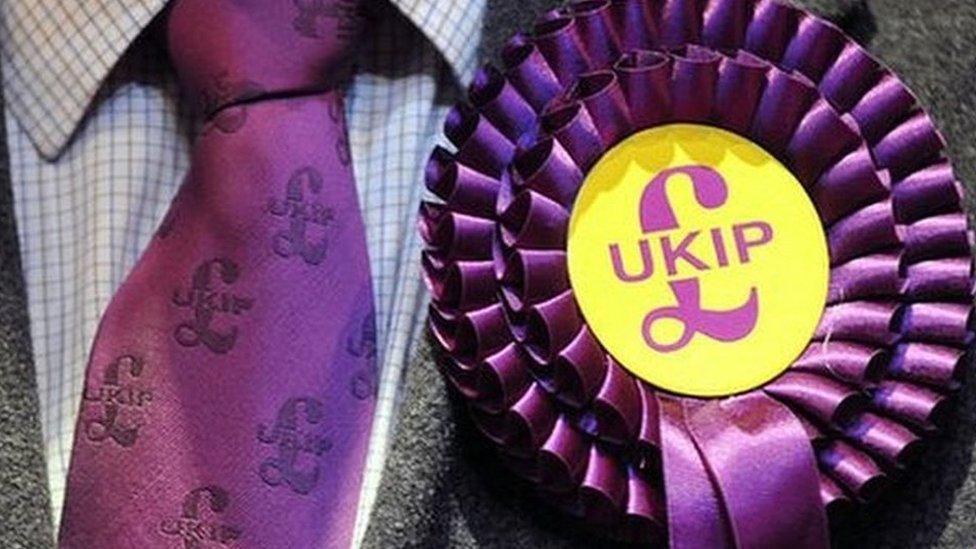
- Published29 April 2017
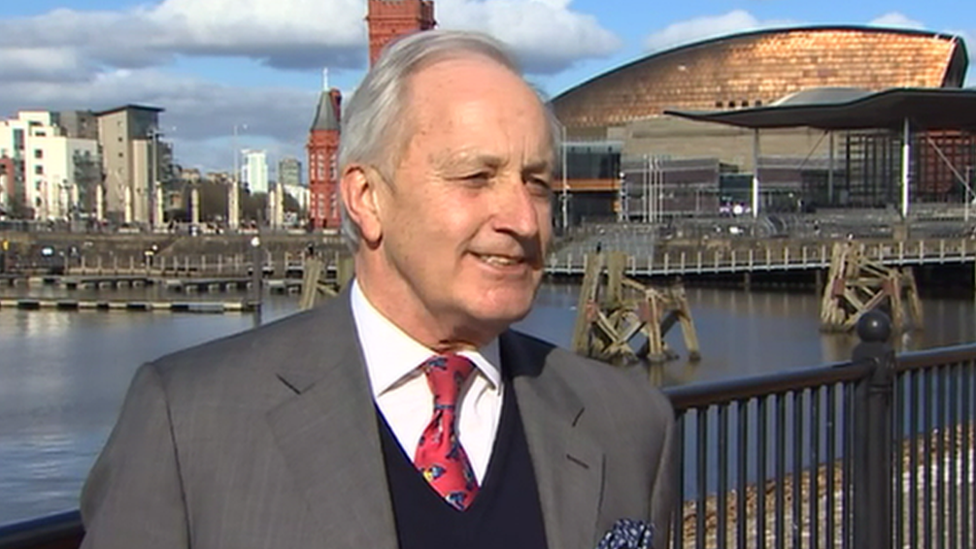
- Published10 May 2017
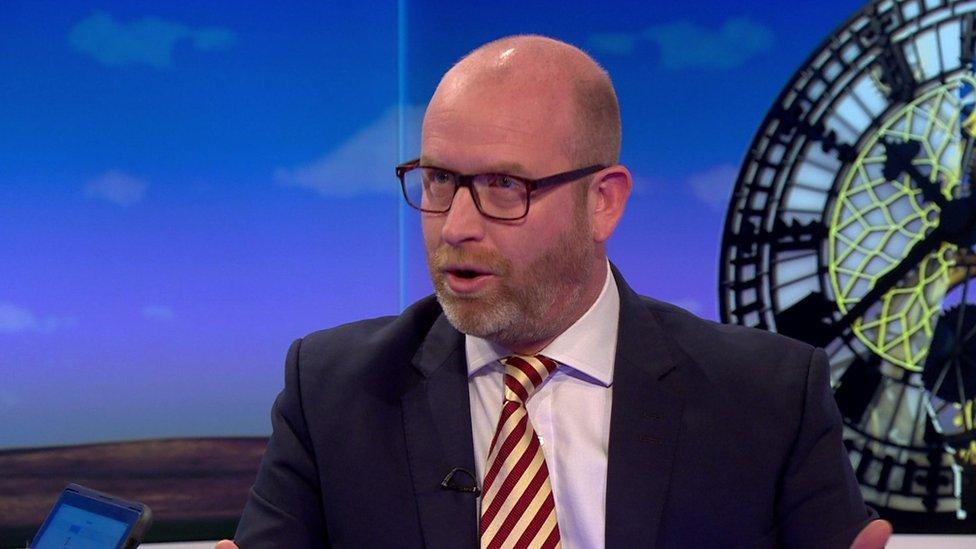
- Published10 May 2017
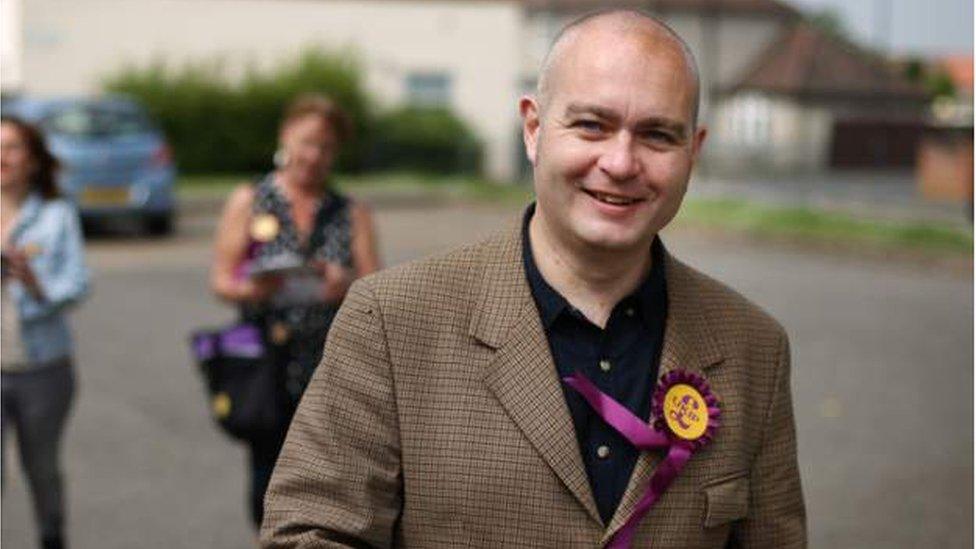
- Published7 May 2017
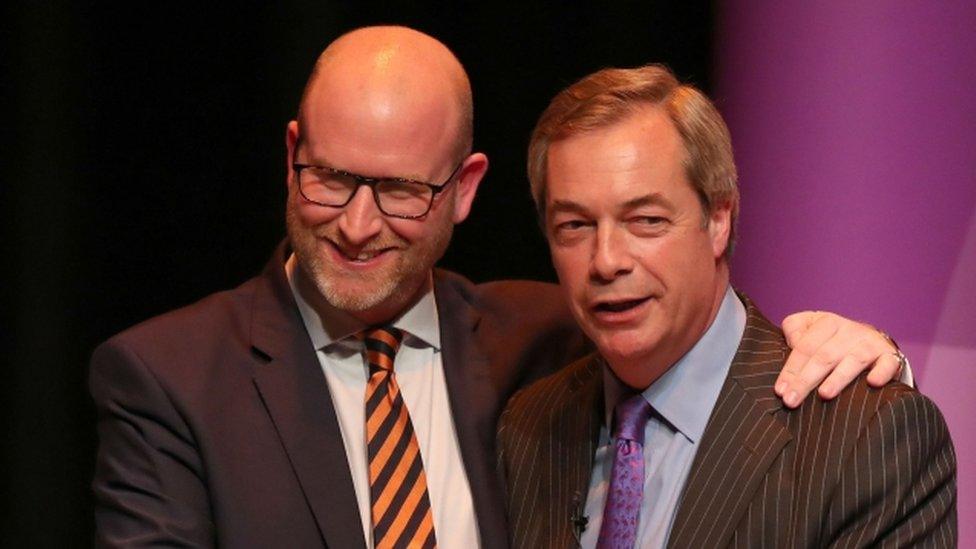
- Published9 May 2017
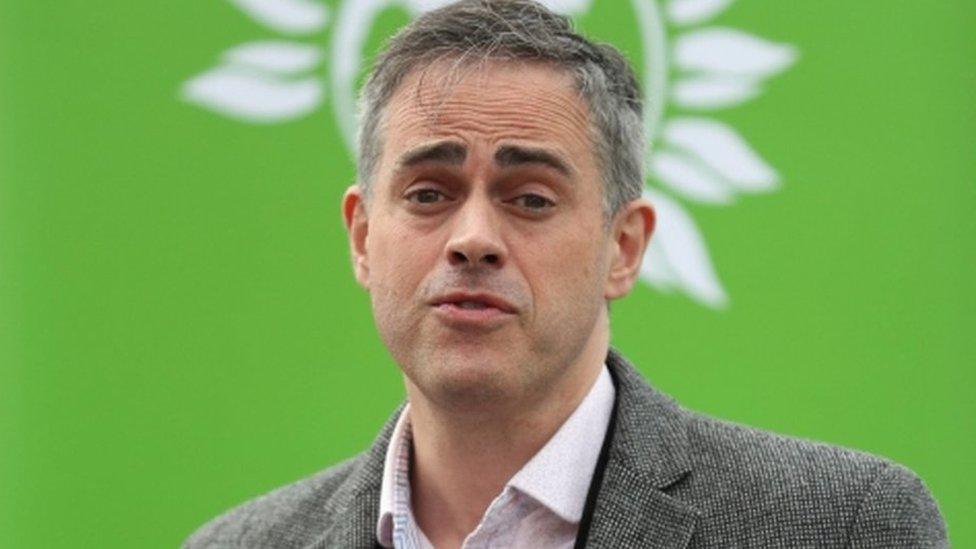
- Published8 May 2017
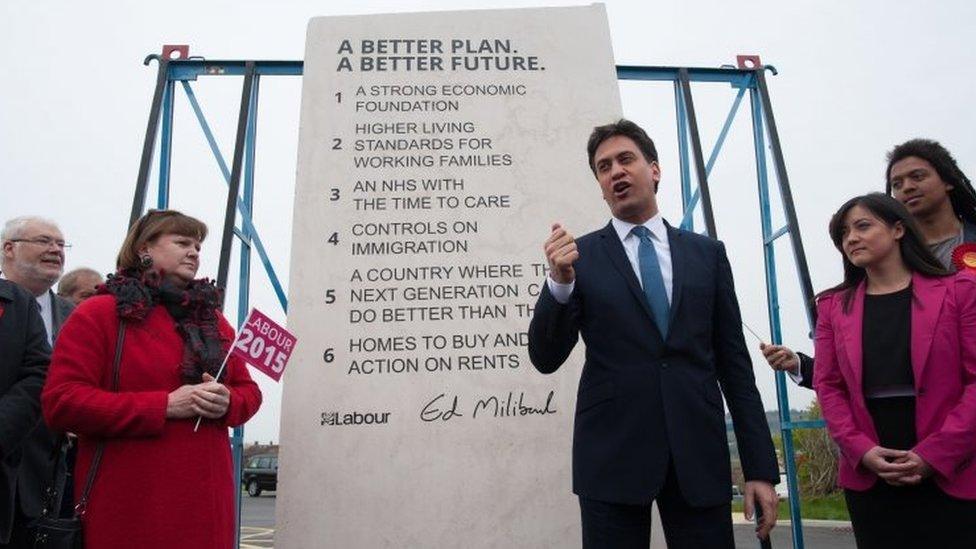
- Published5 April 2017
